The exciting projects were delivered in collaboration with 12 different partners, including local angling clubs, rivers trusts and land owners.
The Fisheries Improvement Programme (known as FIP) was brought together by the Environment Agency through investing over £1.3 million of rod licence income in projects over the last 12 months. The funding has helped to enhance fisheries, boost fish stocks and make improvements for anglers, angling facilities and the environment.
Projects across Hampshire and Sussex include installing fish passes and the improvement of angling access and facilities to ensure everyone can take part in the sport and ensure it is as inclusive as possible. The programme covers rivers and still waters and benefits coarse fish, trout and eels.
Arnie Warsop, an Environment Agency local fisheries officer in Sussex, said:
Anglers often ask us about how we spend the money raised from the sale of fishing licences. The Fisheries Improvement Programme is a prime example of the wide range of activities this income pays for in order to protect and improve fish stocks and fisheries.
All of the projects we fund must demonstrate benefits for anglers. The Fisheries Improvement Programme allows us to identify and invest in work supporting a local, sustainable future for angling.
The programme is also a great demonstration of our partnership efforts, with many of the projects completed with the support of land owners, local businesses and fisheries clubs - it's a real team effort! The more people who go fishing, the more we can invest.
Local FIP projects across Hampshire and Sussex in 2020/21 included:
Hassocks Angling Club (AC) swim creation
FIP funding was used to create disabled access swims at two of the club's venues. This has improved lake access for all club members and provided wheelchair users with more swim options.
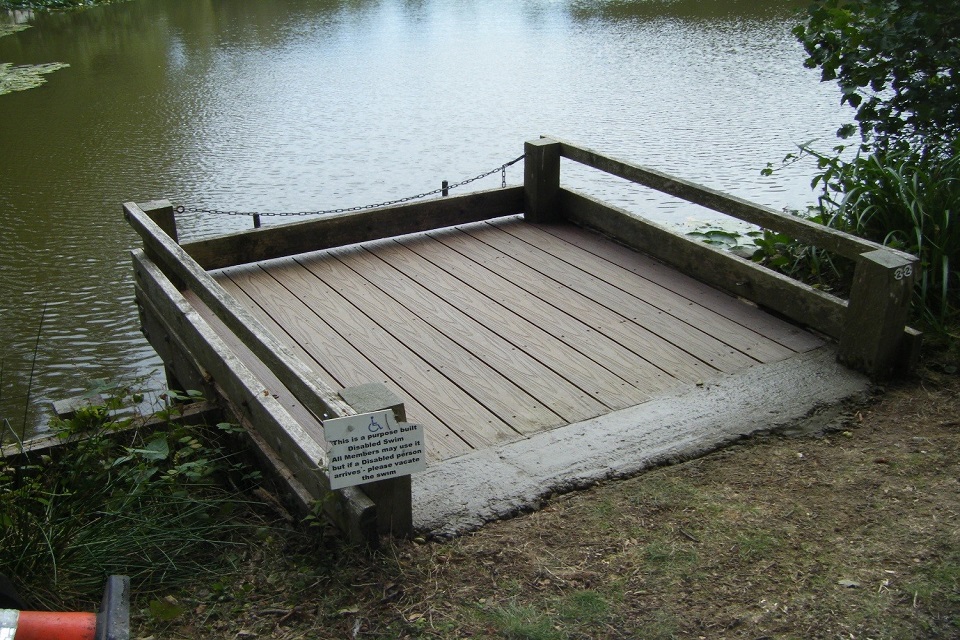
An example of a newly created disabled access fishing platform built and installed by Hassocks Angling Club.
Portsmouth and District Angling Club lake improvements
Funding was invested in making significant improvements at two of their waters. At Tithe Barn, access from the car park to newly installed fishing swims was massively improved. The car park was regraded to create a user-friendly gradient. At Soake Pond, crucial repairs were made to an eroded causeway separating two different fishing lakes. The repairs now prevent bank erosion and eliminate the movement of fish and any potential disease transfer to and from the adjacent lake. Additional marginal vegetation was also planted in the reconstructed causeway; providing important habitat for fish and invertebrates.
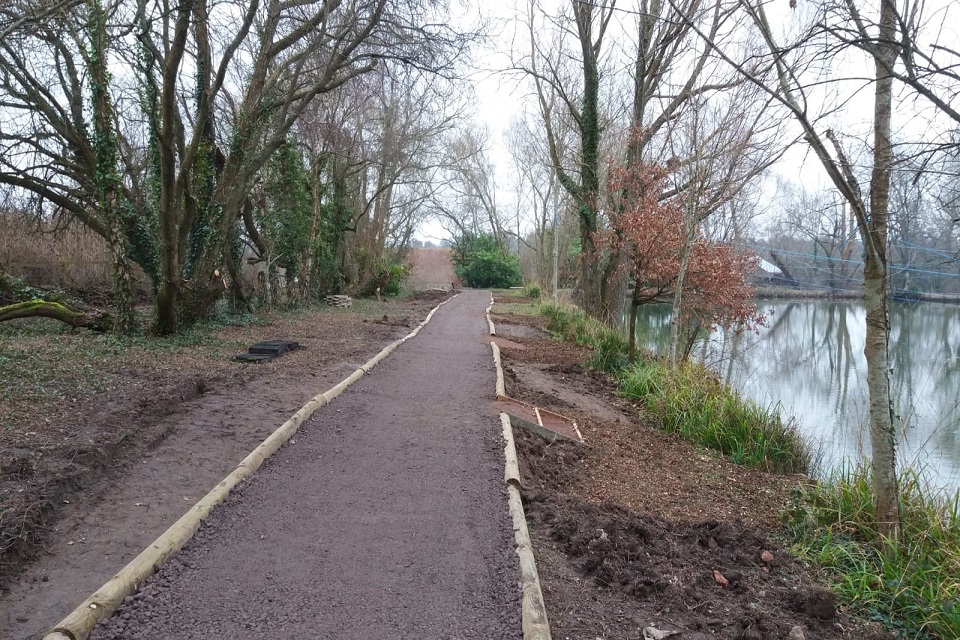
A section of newly constructed pathway, created to connect the car park and recently installed fishing swims at Tithe Barn.
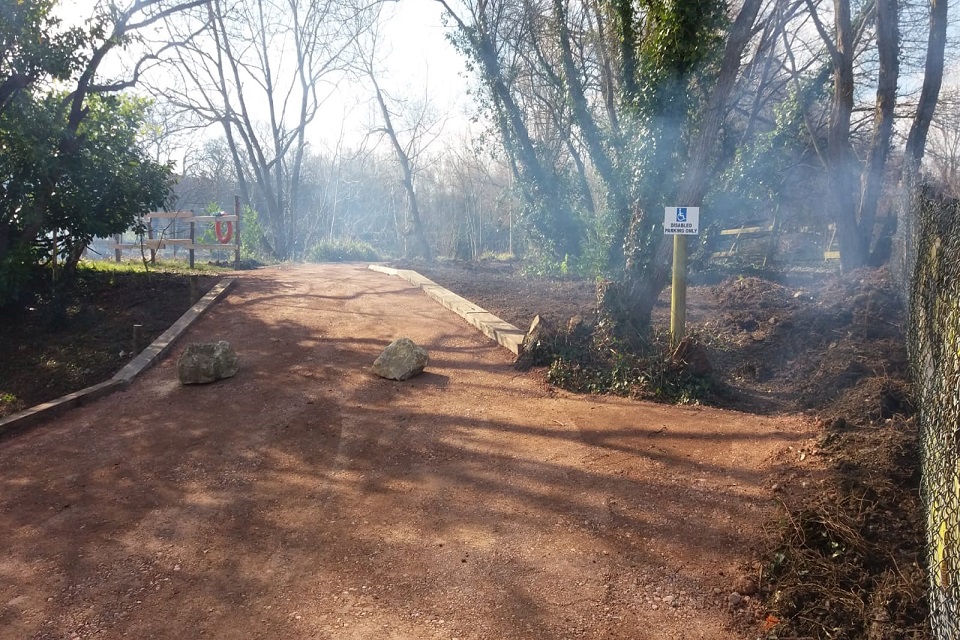
Newly regraded car park with dedicated disabled parking at Tithe Barn.
River Rother habitat improvements
A collaborative project between the Environment Agency, Arun and Rother Rivers Trust (ARRT), Petworth and Bognor Angling Club, Barlavington Estate and tenant farmers to reduce bank erosion and cattle poaching. Volunteers from the angling club planted trees, fencing was erected and bankside brushwood bundles were installed, preventing further erosion and trapping sediment to help reinstate the bank.
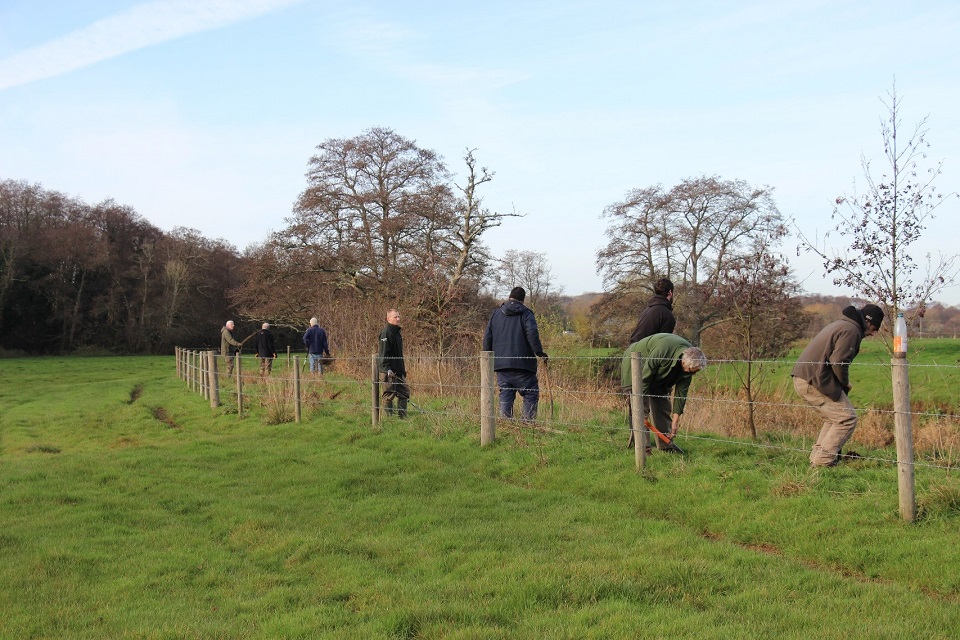
Volunteers from Petworth and Bognor Angling Club planting trees along the River Rother.
Horsted Keynes crucian pond restoration
FIP funding was used to help Horsted Keynes Angling Club restore a pond by desilting and clearing it. Marginal and submerged vegetation, as well as fish refuges, were added. Once settled, it was stocked with tench and crucian carp from the Environment Agency's fish farm in Calverton. Further improvements are planned for 2021/22.
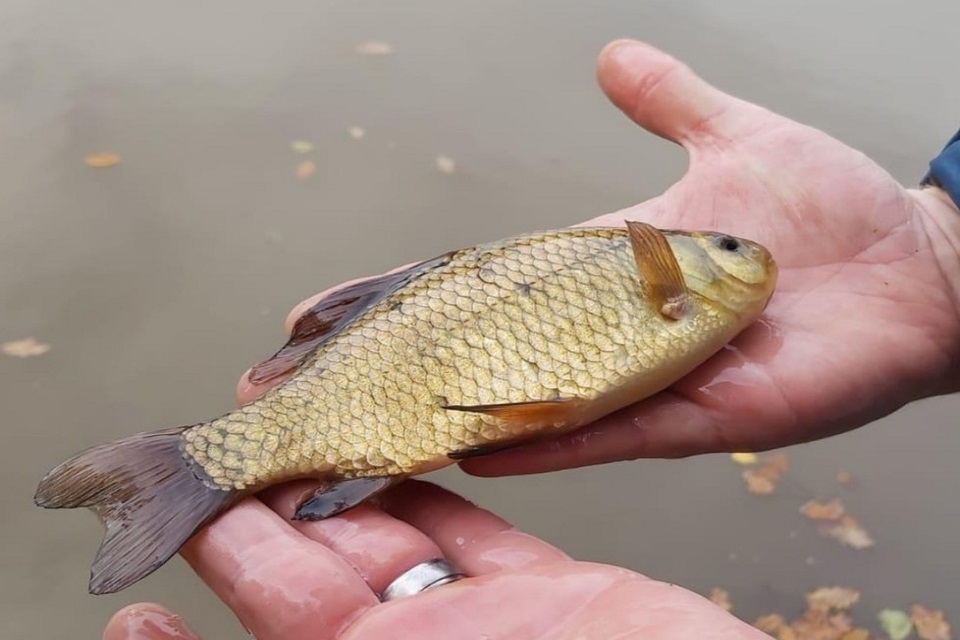
A crucian carp from the Environment Agency's fish farm in Calverton, stocked as part of the crucian pond restoration project.
Additional rod licence income for prolonged dry weather support was also made available to 10 local angling clubs and fisheries. The funding was used to purchase their own aeration and water quality monitoring equipment to help manage water quality issues.
New research reveals that 51% of people are spending more time than ever trying outdoor hobbies like fishing than they did before the pandemic in a desire to connect with nature.
As part of a new campaign, the Environment Agency has created a short documentary film. The Environment Agency hopes this will highlight some of the unique stories of how fishing can be a beneficial activity for coping with the stresses of the last year, socialising and improving mental health.
Looking forward, the Environment Agency wants to hear from more clubs and fisheries about the work and projects they would like to see undertaken.






